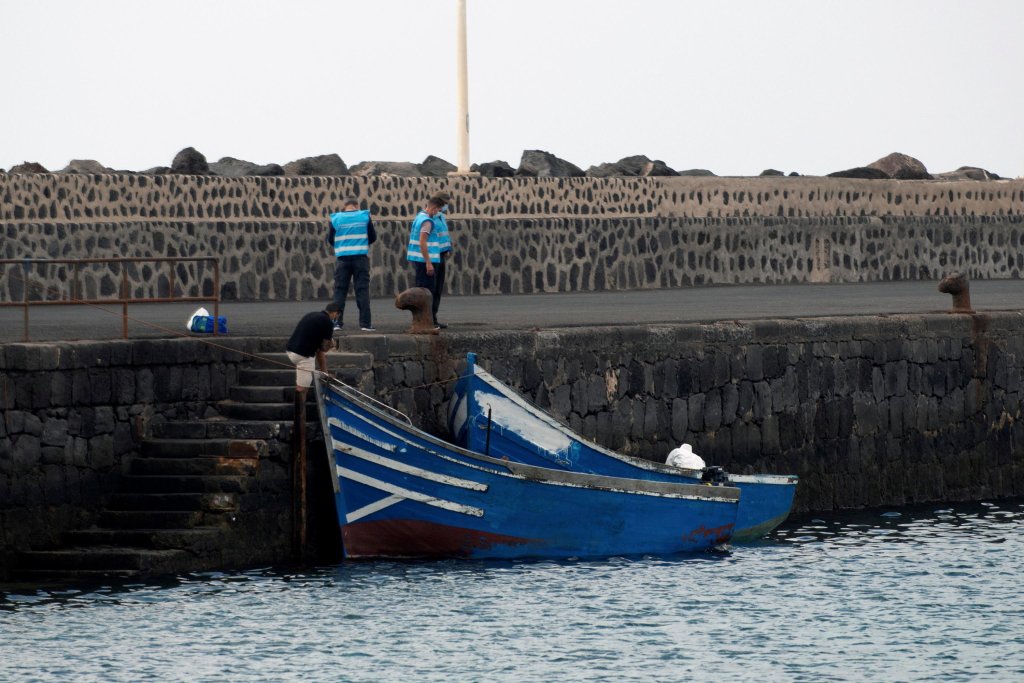Authorities in the Canary Islands have revealed that nearly 6,000 minors are stranded in the archipelago. While many are living in overcrowded, unsanitary facilities, the Spanish regions are refusing to take them.
The fate of thousands of unaccompanied migrant children and young people stranded on the Canary Islands has become the subject of growing conflict in Spain.
There are close to 6,000 unaccompanied minors – migrant children under 18 who are without a parent or guardian – being accommodated on the Spanish-administered islands off the coast of West Africa.
The Canary Islands' president, Fernando Clavijo, has warned that the territory cannot look after these children and adolescents alone, repeating a call for regional authorities to share responsibility for their care.
It's an appeal his government has been making for months, to be allowed to send the minors to the mainland.
Complaint over poor conditions
The facilities for minors in the Canary Islands are not only overcrowded, some of them are also uninhabitable.
One center for minors at Arrecife on Lanzarote – Casa del Mar – failed an official inspection and was threatened with closure in May.
Lawyers filed a complaint over the alleged neglect of 55 minors at the facility, which they say does not meet "minimum habitable standards."
On June 28, the news site Canarias Ahora, a partner publication of El Diario, reported that the center was still open. "Employees and residents have stressed that the facilities are dirty and in poor conditions, the clothes are not washed and the quality of the food is poor," it said.
With further reports of infestations of ants and cockroaches in the center, the Spanish Network of Immigration and Refugee Aid (La Red Española de Inmigración y Ayuda al Refugiado) this week brought a complaint against the Canary Islands' youth affairs authority.
Posting on X, the network emphasized the need for decent facilities for migrants should be considered an emergency.
In the first half of 2024, 19,257 migrants arrived in the Canaries in boats called "pateras" or "cayucos", up from 7,213 in the same period last year, according to data from the interior ministry.
They arrived mostly on the islands of El Hierro and Gran Canaria. More than 80 percent departed from Mauritania, according to Euroactiv news.
Also read: Mauritania – a new irregular migration gateway to Europe?
Compulsory solidarity
The central government has proposed a reform of the immigration law which would force the 17 regions to accept a compulsory distribution of minors. But both Spain’s conservative people’s party (PP) and the right-wing populist party Vox are blocking the move.
Canaries President Clavijo said again on Tuesday that he hoped an agreement with the regions could be reached, also telling local media that without a change to the Aliens Act (Ley de Extranjería), the archipelago would face a "major humanitarian crisis."
In a television interview, the regional president added that the report on the conditions in the Casa del Mar center should "fill Europe and Spain" with shame.
According to Canarias7, a daily newspaper in Gran Canaria, Clavijo told Televisión Española that the center could not be closed because the result would be to force the minors to sleep on the streets or in tents.
As the law stands, the national government is responsible for the care of adult migrants, but responsibility for unaccompanied minors, including relocation under the failed voluntary solidarity arrangement, lies with the regions.
Under the proposed amendment to Article 35 of the law, the state would take charge of minors and the Canary Islands’ authorities would only be responsible for temporary custody.
Also read: Canary Islands seek to relocate almost 5,000 migrant minors

'Patera feet'
The aim is to limit the number of unaccompanied minors on the islands to 2,000, with any overflow beyond 3,000 considered overstretched and triggering transfers under the compulsory solidarity mechanism.
Clavijo has tried to appeal to the hearts of those – mainly on the political right – who continue to resist the changes, saying many people were unaware of what minors in the Canary Islands had been through.
"You have to see the children who arrive and they have had to throw a brother or sister overboard because they died during the journey. You have to see how they arrive with swollen feet, so-called 'patera feet'," he said.
